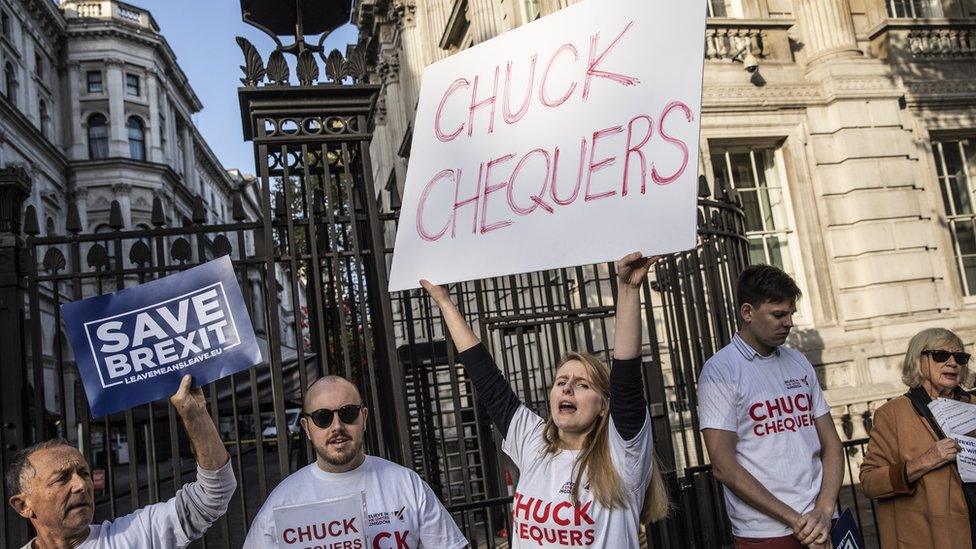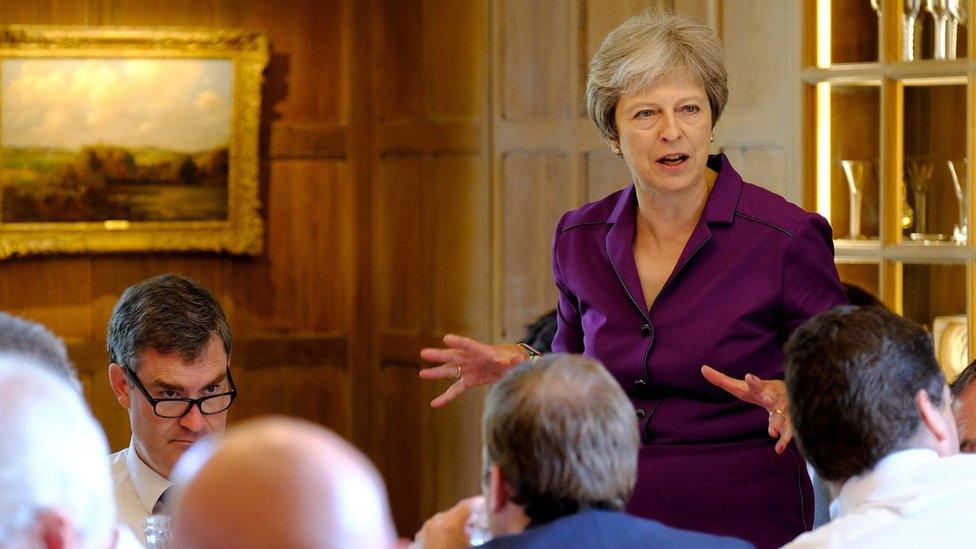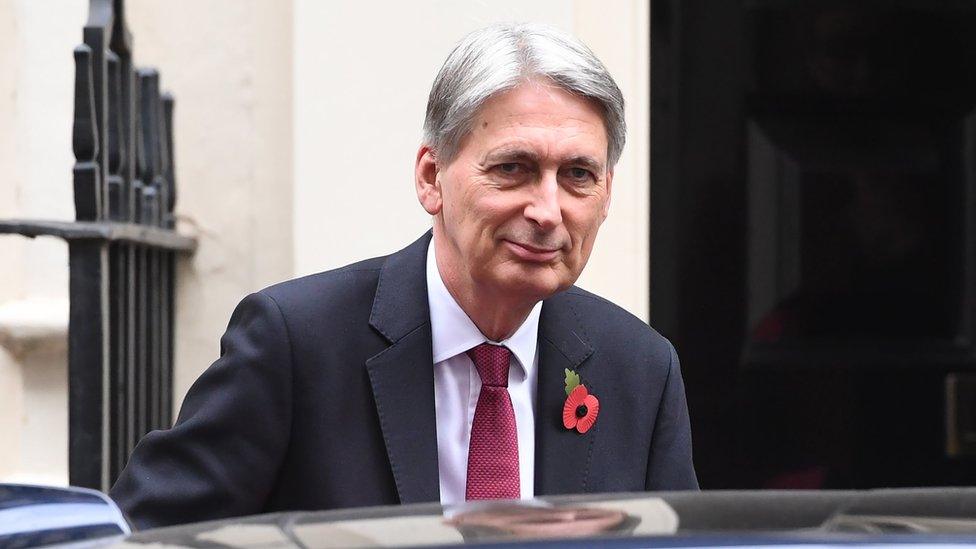Why May's Brexit deal may be impossible
- Published

Opponents of the prime minister's Brexit deal are found outside and inside her cabinet
It is no secret that Theresa May is struggling to get her cabinet on board.
Seven days ago it felt that the ingredients for concluding this vital stage of the Brexit deal were there, waiting perhaps for the political moment to feel right.
But a week on, tortured negotiations continue both between the UK and the EU, and between Downing Street and those who gather at Number 10 for the weekly cabinet meeting. And perhaps you shouldn't be surprised at how reluctant the cabinet is to sign up.
The simple explanation of why they aren't all gladly rushing to back exactly what the prime minister has been planning? Many of them didn't like it much from the start, and some of them don't believe it has a chance of passing Parliament now.
This is not just about the problems of the Irish border, but about the prime minister's overall preferred plan for Brexit, brokered in the heat of the summer at her Chequers country retreat.
There's no secret that the proposals were unpopular with the big Brexiteers. The dramatic departures of David Davis and Boris Johnson saw to that.
But what is only now clear from cabinet sources is just how widespread the discontent was - expressed not just by Eurosceptics but by former Remainers too.
And the frustrations from months ago are unquestionably part of the reason why there is such a stalemate now. Two cabinet ministers last night told the BBC there was little chance that the deal as currently planned would get through parliament. One of them said it was "self-harming" for the prime minister to keep pursuing the same strategy.
Sources have described how multiple cabinet ministers expressed significant doubts from the start.
Elements of the so-called Chequers proposals were described as "worrying", "disappointing", and "concerning" by different members of the prime minister's top team, as the press waited in sweltering heat outside at the end of the grand estate's very, very long drive, across the other side of what actually was, joking apart, a field of wheat.

Theresa May outlines her Brexit plan at Chequers
And what's really notable is how some former Remainers - including Home Secretary Sajid Javid and Defence Secretary Gavin Williamson - were candid about their fears too. This was not just an exercise in Brexiteers sounding off, but ministers from across the Tory party pointing to deficiencies in the proposed deal.

Chancellor Philip Hammond has questioned whether the EU will agree the deal
I've also been told that several ministers, on both sides of the argument, are understood to have called on the prime minister to be honest with the public about the shift in position towards a closer arrangement with the EU.
Months on, I've lost count of the number of times ministers and advisers in government have expressed frustration at how they perceive Theresa May has failed to do that.
Even for some of her backers, her strongest selling point should be being upfront about the fact she is trying hard to find a middle course, not to be the ideologue making crazy promises.
But around Westminster, there is deep frustration on the Tory backbenches that she rarely seems willing to make that case, always sticking to a few tight lines that concede only the bare minimum about what she is trying to do.
Of course, the Chequers meeting did ultimately give the prime minister's plan its backing. Ministers like the chancellor and the business secretary were clear that the risk of no deal was simply not worth taking.
But from what sources have described it is extremely clear that for many of those present, the Chequers proposals were a deeply undesirable compromise, rather than a plan they were agreeing to with any enthusiasm. One senior minister told me most of those present signed up "with a very heavy heart".
A Number 10 spokesman said: "Everyone has to move a little to get a deal that works for everyone on both sides of the argument." But the roots of the current impasse at home surely lie in much of the cabinet's view at that time.
If they didn't like it much then, why would they like it much now, let alone help the prime minister fight for it?
With the EU reluctant to budge, and Parliament deeply unconvinced, what was a deeply unappetising compromise may yet prove an impossible one.